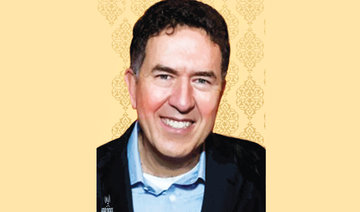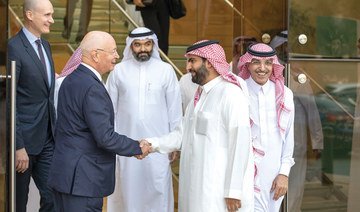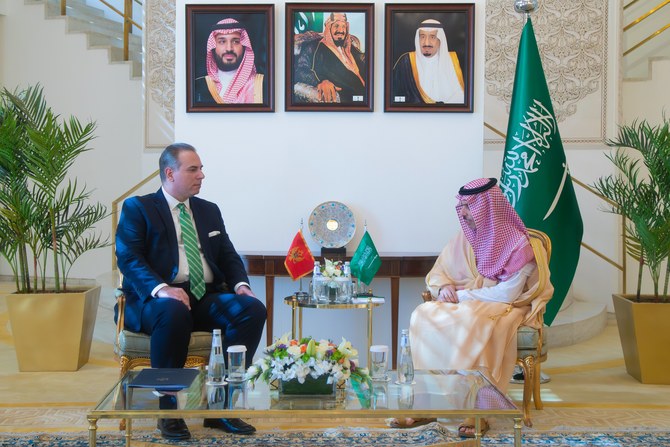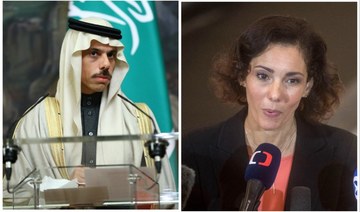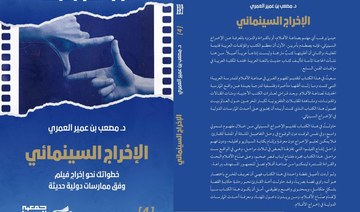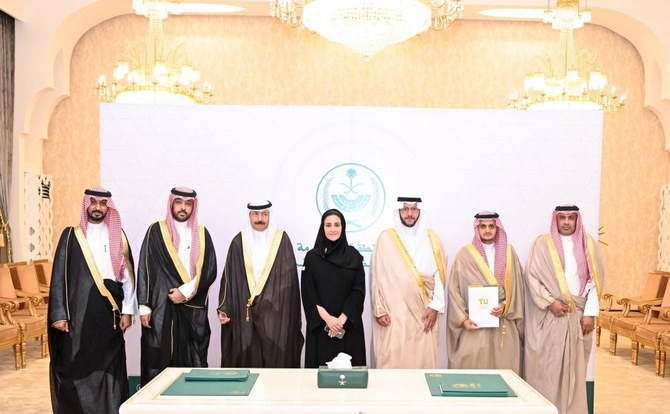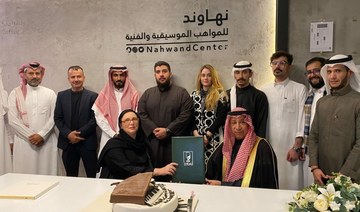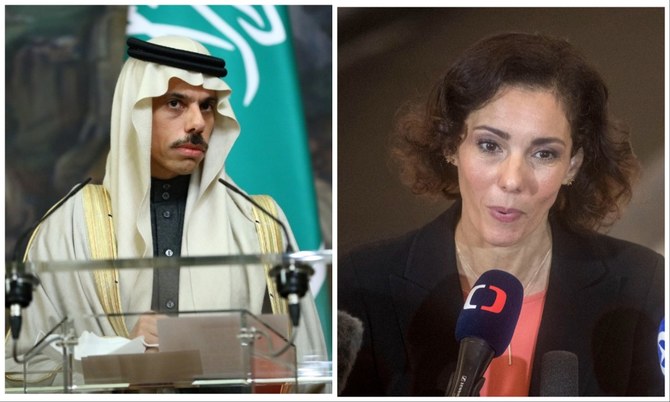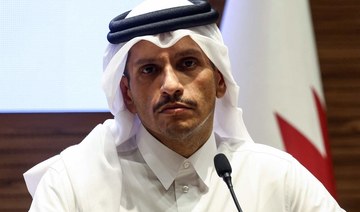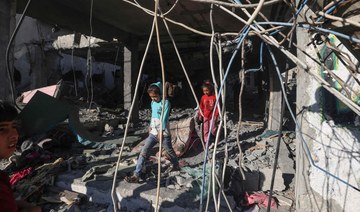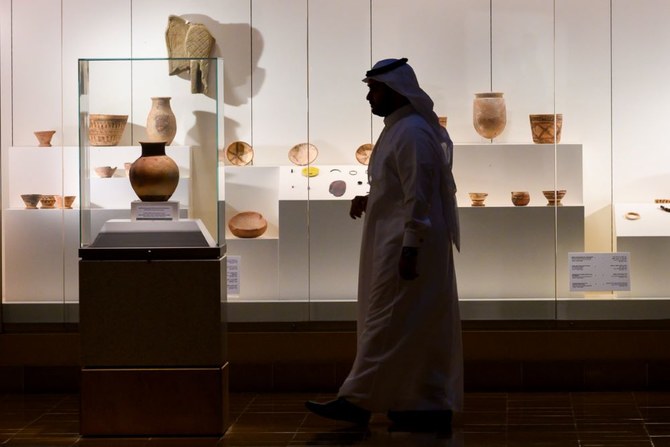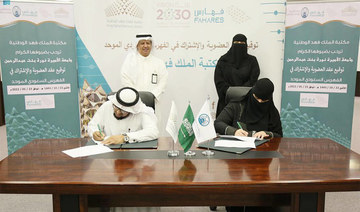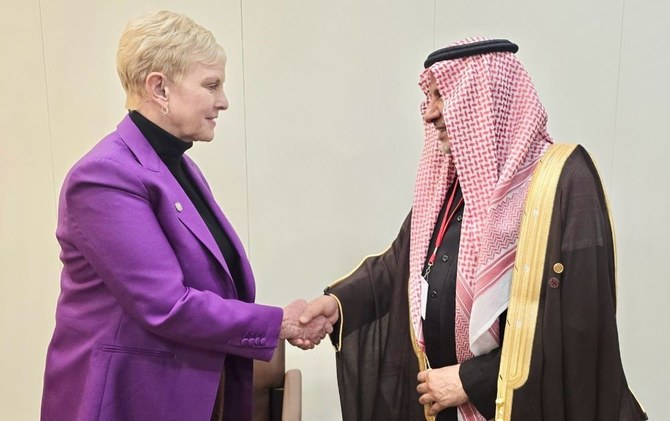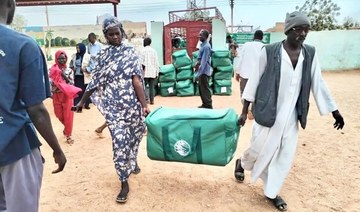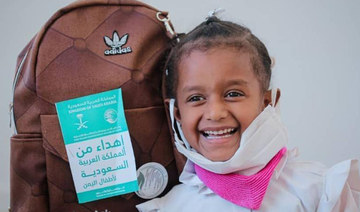DUBAI: Saudi Arabia will soon be the host of one of the most prestigious institutions at the heart of the World Economic Forum’s (WEF) effort to shape the development and application of emerging technologies for the benefit of humanity.
The Saudi branch of the Center for the Fourth Industrial Revolution (C4IR) — a network of technology-governance hubs and affiliate centers — will be the outcome of an agreement reached late last year between the Kingdom and the Swiss-based non-profit organization.
The agreement heralds a new era of cooperation between the WEF and the King Abdulaziz City for Science and Technology (KACST), supported by the Saudi Center for International Strategic Partnerships (SCISP).
At the 50th annual WEF meeting in Davos, it was also announced that a conference on “the Middle East in the Fourth Industrial Revolution” would be convened in Riyadh on April 5-6.
The WEF’s website says: “Saudi Arabia’s G20 presidency in 2020, the first time an Arab and Middle East country has such a mandate, presents a unique opportunity for the entire region to take a global view of its future.”
4IRTECH
- Artificial Intelligence and Machine Learning.
- Autonomous and Urban Mobility.
- Blockchain and Distributed Ledger Technology. Data Policy.and digital trade, plus drones and Tomorrow’s Airspace.
- Fourth Industrial Revolution for the Earth.
- Internet of Things, Robotics and Smart Cities; and precision medicine.
The April meeting is billed as “a crucial opportunity to rise above the fog of geopolitical uncertainty and the gravitational forces of legacy conflicts and scale up the efforts of the region’s outstanding thinkers and practitioners who are committed to a can-do, positive agenda for the region and its people.”
In a 2015 essay in the magazine Foreign Affairs the founder and executive chairman of the WEF, Klaus Schwab, had defined the 4IR thus: “The First Industrial Revolution used water and steam power to mechanize production. The Second used electric power to create mass production. The Third used electronics and information technology to automate production.
“Now a Fourth Industrial Revolution is building on the Third … It is characterized by a fusion of technologies that is blurring the lines between the physical, digital, and biological spheres.”
Muhammad Khurram Khan, CEO of the Global Foundation for Cyber Studies and Research in Washington, said the decision to establish a 4IR center in Saudi Arabia demonstrated the leadership’s commitment, in line with its National Transformation Plan (NTP) and Saudi Vision 2030, to “developing effective solutions to the challenges faced by organizations, while creating capacity and capability in the Kingdom.”
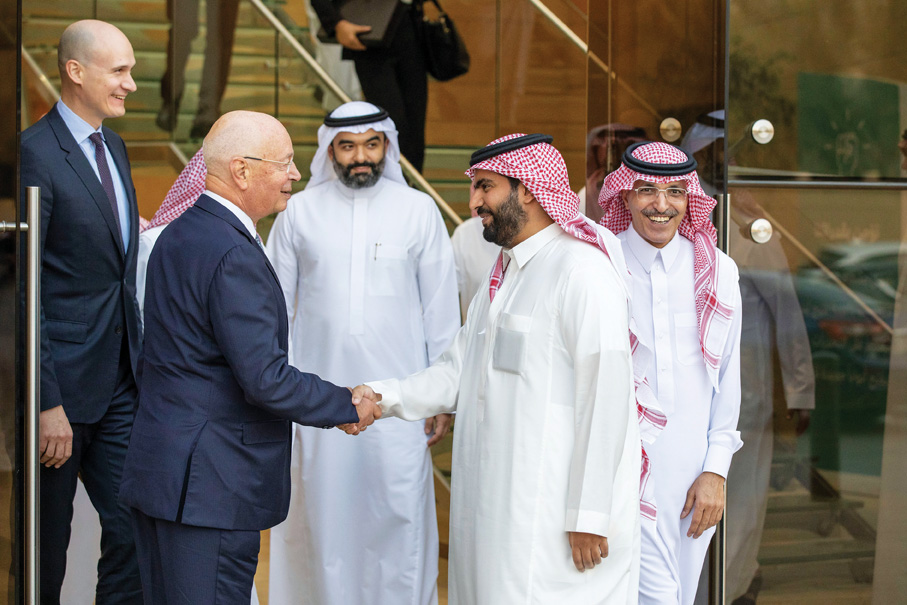
Saudi Culture Minister Prince Badr bin Abdullah greets WEF founder Klaus Schwab in Riyadh on Wednesday. (SPA)
According to Khan: “Governments around the world are investing heavily in cutting-edge and emerging technologies to boost gross domestic product and diversify their economy.
“The 4IR could help governments and organizations to drive economic development, competitiveness and social progress.”
“This will help overhaul the national economy by investing in modern technologies to create alternative sources of revenue, as well as new jobs and opportunities.”
The Saudi government has said KACST will manage the affiliate center in cooperation with the WEF, providing space for the development of 4IR mechanisms, plans and applications in the Kingdom.
It is also expected to “contribute to the adoption of technology and best practices in the region and the world, reinforcing the directives of the leadership and harnessing the tools provided by the 4IR to serve the Kingdom.”
The C4IR network, which is headquartered in San Francisco, currently has hubs in India, China and Japan, in addition to the affiliate centers.
The network “brings together governments, business organizations, dynamic startups, civil society, academia and international organizations from around the world to work together across nine emerging technology areas,” including artificial intelligence (AI) and machine learning, autonomous mobility, data policy, drones, the Internet of Things (IoT) robotics, and smart cities.
Furthermore, C4IR partners can send fellows to any of the four main hubs or affiliate centers, thus enabling a continuous exchange of insights and knowledge sharing.
“Having such a center is very important to Saudi Arabia, given the heightened levels of tensions as well as recent attacks on the Aramco pipeline,” said Matthew Cochran, CEO and co-founder of URS Laboratories in the UAE.
By virtue of its location, the center will facilitate customized solutions based on real-world requirements that are different for Saudi Arabia to other places in the world, he said.
Citing the September 2019 drone strikes on Saudi Aramco’s oil facilities in Abqaiq and Khurais, and the many cyber-attacks on the Kingdom in the past, Cochran said: “The 4IR and the ability for countries and governments to react quickly is a challenge globally.

“Saudi Arabia has shown, especially in the past 12 months, that they are willing to change and adapt their responses to threat levels with new ways of protecting their assets.
“It must be a coordinated approach across all government agencies and, just as in the US, we have an increasing landscape of commercial security working with government security to protect vital assets.”
That being said, Cochran expects the C4IR’s Saudi center to face challenges similar to what many other technology-governance institutions are grappling with.
“As AI and machine learning become faster and better, we will have machines talking to robots and robots speaking to unmanned vehicles, in the air, on sea and land,” he said.
“The potential challenges will be, in some ways, simply setting up the ability for those machines, robots and vehicles to deliver their requirement safely, with humans either in the middle or as the end-user.”
As a host government, Saudi Arabia will be expected to commit to supporting and advancing the development and deployment of pilot frameworks on topics aligned with projects launched by the C4IR network, according to the WEF’s website.
“The Kingdom’s participation in this global initiative of the WEF is a golden opportunity for extending economic relations, exploring investment prospects and learning from — and sharing experiences with — industrially developed countries,” Khan said.
“The local center can cooperate with various public and private-sector organizations, international institutions, civil society, and think-tanks to develop innovative approaches and shape policies for the governance and utilization of 4IR technologies.
“The objective would be to maximize benefits and minimize risks for the benefit of local as well as global actors.”
Khan said the main challenge for the Saudi C4IR center would be the shortage of high-tech skills and talent needed to develop, implement and scale up what the WEF calls “agile and human-centered pilot projects that can be adopted by policy-makers, legislators and regulators worldwide.”
“The public and private sectors in the Kingdom need to come forward, establish training, education, research and innovation programs and invest in human capital to meet the demands of this revolution,” he said.
“The challenges and opportunities of the 4IR are global in scope, have cross-industry impact and require multi-actor cooperation.”




